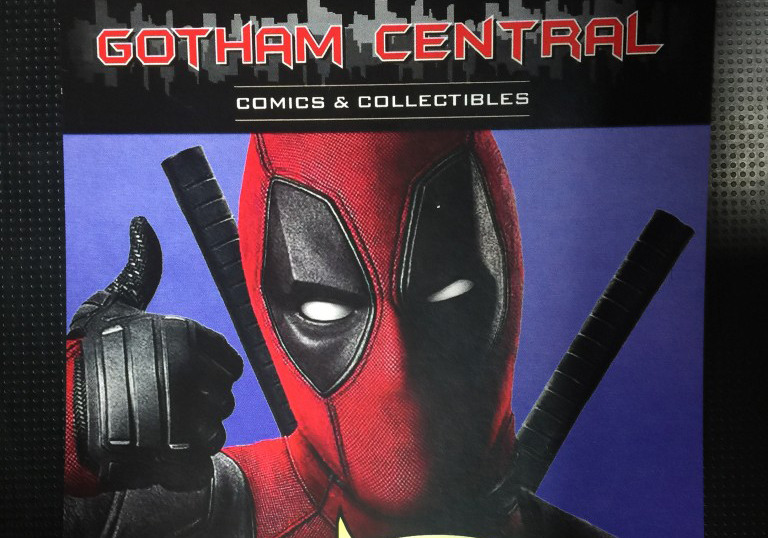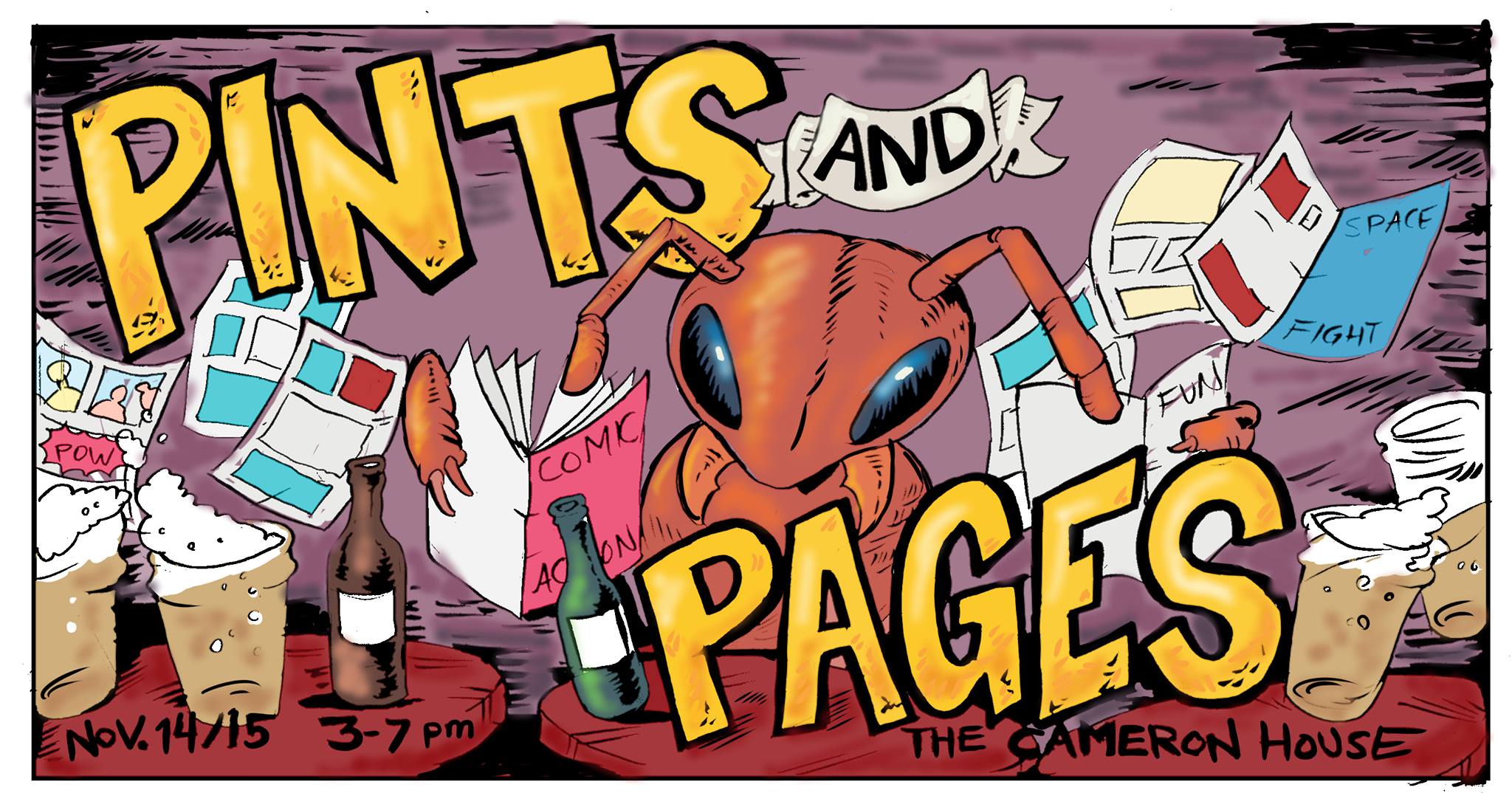I’ll say one thing about Vin Diesel: he is one of only a handful of Hollywood stars who is consistently and doggedly pushing new science fiction onto the big screen, in an era when pre-sold brand properties rule the day. Without star performers like Diesel, Tom Cruise and Will Smith, taking an interest in hard sci-fi, Hollywood might have abandoned it decades ago.
Diesel announced this summer that he will be producing and starring in, a new science fiction franchise called Soldiers of the Sun, which will see him head up a squad of soldiers in a post-apocalyptic future, searching for the lost city of gold. Besides that, of course, Diesel has Riddick – a franchise the actor has emphatically refused to let die, out of his sheer fondness for it and the title character that he plays.
The Riddick franchise – not unlike Diesel’s main cash cow, the improbably long-lived Fast and the Furious series – should not, strictly speaking, still be with us. The unlikely outgrowth of a single, under-the-radar genre picture from 2000’s Pitch Black, the larger Riddick saga now includes a much bigger 2004 sequel, The Chronicles of Riddick, a straight-to-DVD animated film, two video games, and this September, a third live-action motion picture – all without having made, in conventional Hollywood terms anyway, much money.
In the lead role as Richard B. Riddick, whose silver eyes let him see in the dark and whose fondness for tank tops likens him to Diesel’s other heroes, Dominic Toretto and XXX, Vin Diesel is the engine that has driven this mid-sized franchise forward over thirteen years. Diesel, and franchise writer/director David Twohy, have seen potential in both Riddick and his world, likening Pitch Black to The Hobbit which served as the setup for the Lord of the Rings saga. So they keep making these movies against all odds, hoping perhaps, that eventually one of them, like the later entries in The Fast and the Furious franchise, will catch fire at the box office and ignite a new global phenomenon.
Whether Diesel and Twohy have truly created a larger mythology around the original Pitch Black that hearkens to The Hobbit’s relationship with Lord of the Rings, is debatable. But thirteen years later, Pitch Black remains an impressive stand-alone piece of science fiction horror. It’s a genre that’s almost impossible to do well, but Pitch Black nails it, delivering great scares and thrills amid impressive, low-budget visuals. A spaceship full of random civilians crashes, on a nameless planet with three suns. Among the civilians on board are escaped convict Riddick, and the bounty hunter who has tracked him down. They quickly discover that the darker hiding spots on the planet are infested with giant, man-eating alien bats that shrink away from light but are lethal predators in the dark. Naturally, a once-in-22-years solar eclipse that will occlude all three suns is about to occur, throwing the entire world into total darkness.
The clever simplicity of the premise – a film-long gloss on the franchise’s signature line, “You’re not afraid of the dark, are you?” – is matched by the strength of the anti-hero. Twohy intentionally keeps the details about Riddick vague in his script. Riddick is so entirely past caring what anyone thinks of him, that he puts no effort into refuting all the wild gossip about his criminal past. This, of course, only serves to heighten his allure to many of the characters within the film, as well as to us. Riddick’s an ass, sure enough; but he’s also impressively capable, smarter than he looks, and maybe, just maybe, unfairly condemned. Diesel was in the throes of his “breakout star” phase when Pitch Black was made. A breakout which did not, strictly speaking, happen at that time, to the degree to which Hollywood seemed to want it to. He knows how to play the Riddick character like a fiendish violin, and is nicely unafraid of leaning into the nastier, more unlikeable corners of Riddick’s soul; and he comes away all the more entertaining for it.
The getup is a bit ridiculous. Riddick’s black tank top and welder goggles make him look like a refugee from a 1990 David Fincher music video, but Diesel has the physical chops to sell the character convincingly. Twohy supports this by shooting Riddick in the first act of the movie, almost like the xenomorph from Ridley Scott’s Alien. Riddick says very little, is chained up half the time, and seems less like an animal (as his voiceover claims) than a full-on extraterrestrial. By the time he twigs to the fact that young “boy” Jack is actually a girl by sniffing out her menstrual blood, Diesel has delivered a truly creepy, memorable anti-hero.
Some of the other elements of Pitch Black are less successful. In the default Ripley role, Radha Mitchell can’t quite summon up the strength to compete with the others, and as far as “Ten Little Indians” plots go, Pitch Black has the same problem as most films in the genre when it comes to setting up eight or ten supporting characters who are interesting enough to hold our attention until they inevitably get killed. But there’s a harsh sincerity to Pitch Black overall that keeps it effective – a trait that it does not, unfortunately, pass on to its successor.
The Chronicles of Riddick expands the scope of the series significantly, putting Riddick in the middle of a good vs. evil intergalactic combat across multiple worlds; and recasting the violent loner as the savior of the universe. The cast is impressive: Colm Feore, Karl Urban, Thandie Newton, and Judi Dench in one of her strangest roles, as an air spirit who appears and disappears at will. As a visual piece, Chronicles is pretty terrific. It is beautifully designed, creating a big canvas of costumes, sets, props, and visual effects that nicely world builds around the skeletal frame established in Pitch Black.
The difference between the two movies is Riddick himself. Where Pitch Black was cold and unsentimental about its main character, Chronicles seems like an act of unabashed vanity on the part of Diesel, or Twohy, or both. Reformulating Riddick as a hero – albeit a wholly reluctant one – is not necessarily a bad idea in and of itself; it’s just impossible for Diesel to play it without Riddick coming off seeming like a jerk. The film seems distractingly caught up in how “cool” Riddick is – as a character, an idea, and even an icon. There are many impossibly cool slow-motion shots of Riddick doing impossibly cool things; but because Riddick himself is supposedly so inherently uninterested in the exact type of hagiography the film is stamping him with, Chronicles develops a wobble at its center that it never overcomes.
Whereas the first film allowed us to suspend disbelief with a wonky, but relatable, premise: darkness-preferring monsters come out in numbers when the world is plunged into total darkness, The Chronicles of Riddick leans frequently on “science fiction for idiots.” The best example of this is the extended sequence where the heroes race across a planet where the sun comes up every fifteen minutes, with deadly effect. The sun is theoretically hot enough to scorch anyone who gets caught under it, but yet anyone can be safely hidden from harm behind a handy out-cropping of rock. Set pieces like this might work in a video game, where no one gives a hoot about an outdated concept like “reality,” but they don’t work in The Chronicles of Riddick.
Pitch Black made a small but appreciable $39 million when it was released in 2000, and four years later Chronicles of Riddick made a much less impressive $59 million considering its much larger budget. The train should have stopped there, but both films are long-term hits on DVD, cementing the existence of a fan base to which Diesel and Twohy are only too happy to cater. After several more years of trying, and a substantial uptick in Diesel’s star status (thanks to the Fast franchise), Diesel and Twohy are back with Riddick, which sees Riddick ousted by the Necromongers and planning his revenge. It’s hard to say which way the film will lean, but we can hope it is more Pitch Black than Chronicles of Riddick, and returns Riddick to the unsentimental badass that he was in the first film.































